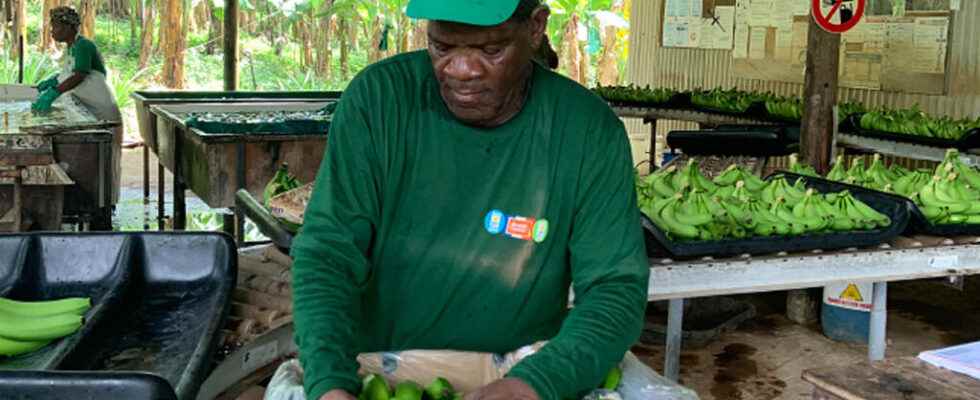To what degree have farmers been exposed to chlordecone, used since the 1970s in the banana plantations of Martinique and Guadeloupe before being banned in 1993 due to its toxicity? The Minister Delegate for Overseas Jean-François Carenco announced, Sunday, January 15, an acceleration of the screening of the level of this pesticide in the blood of agricultural employees.
” I got a little nervous to make sure that on February 6, blood tests would take place on all farms “, declared the Minister Delegate for Overseas Jean-François Carenco, visiting a banana plantation in Lamentin, in the center of the island, Saturday January 15.
Last month, the island’s Regional Health Agency (ARS) announced on December 16 the launch of a free chlordecone dosing campaign directly on farms. Because if these tests were already possible, few agricultural workers used them because of the remoteness of the laboratories, while 6,000 to 7,000 workers would be concerned. This campaign initially planned a deployment “ during the first half of 2023 ” in 23 banana farms of the Banamart cooperative, before expanding “ later to other agricultural sectors, according to the ARS press release.
Nine out of ten Martiniquans infected
The chlordecone affair was at the heart of the trip of the minister who had precisely decided to go to Martinique following the dismissal of the case decided by the courts in this case. January 2, Parisian investigating judges had recognized a ” health scandal » but endedwithout prosecution, to the investigation opened since 2008 into the poisoning of the population and the environment by this pesticide, banned since 1993.
A decision which aroused anger and incomprehension in Martinique and Guadeloupe where nearly 90% of the populations are contaminated, according to the health authorities, who estimate that a quarter of these Martiniquans and 15% of these Guadeloupeans are at risk of developing a disease linked to overexposure to chlordecone.
► Also to listen: Chlordecone, the pesticide that poisons the West Indies
(With AFP)
